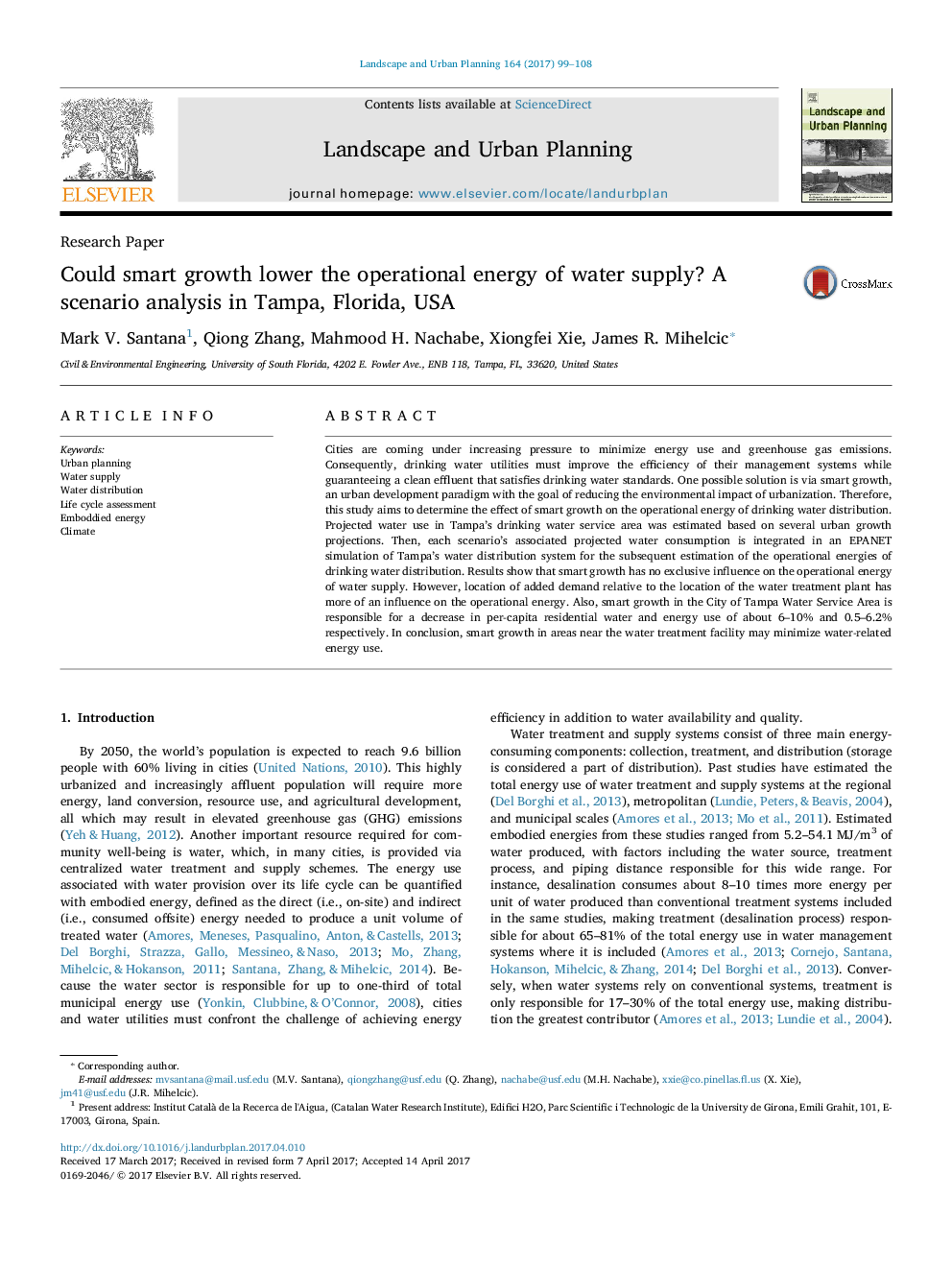ترجمه فارسی عنوان مقاله
می تواند رشد هوشمندانه انرژی عملیاتی تامین آب را کاهش دهد؟ تجزیه و تحلیل سناریو در تامپا، فلوریدا، ایالات متحده آمریکا
عنوان انگلیسی
Could smart growth lower the operational energy of water supply? A scenario analysis in Tampa, Florida, USA
| کد مقاله | سال انتشار | تعداد صفحات مقاله انگلیسی |
|---|---|---|
| 127360 | 2017 | 10 صفحه PDF |
منبع

Publisher : Elsevier - Science Direct (الزویر - ساینس دایرکت)
Journal : Landscape and Urban Planning, Volume 164, August 2017, Pages 99-108
ترجمه کلمات کلیدی
برنامه ریزی شهری، تامین آب، توزیع آب، ارزیابی چرخه حیات، انرژی تجدید پذیر، آب و هوا،
کلمات کلیدی انگلیسی
Urban planning; Water supply; Water distribution; Life cycle assessment; Emboddied energy; Climate;

